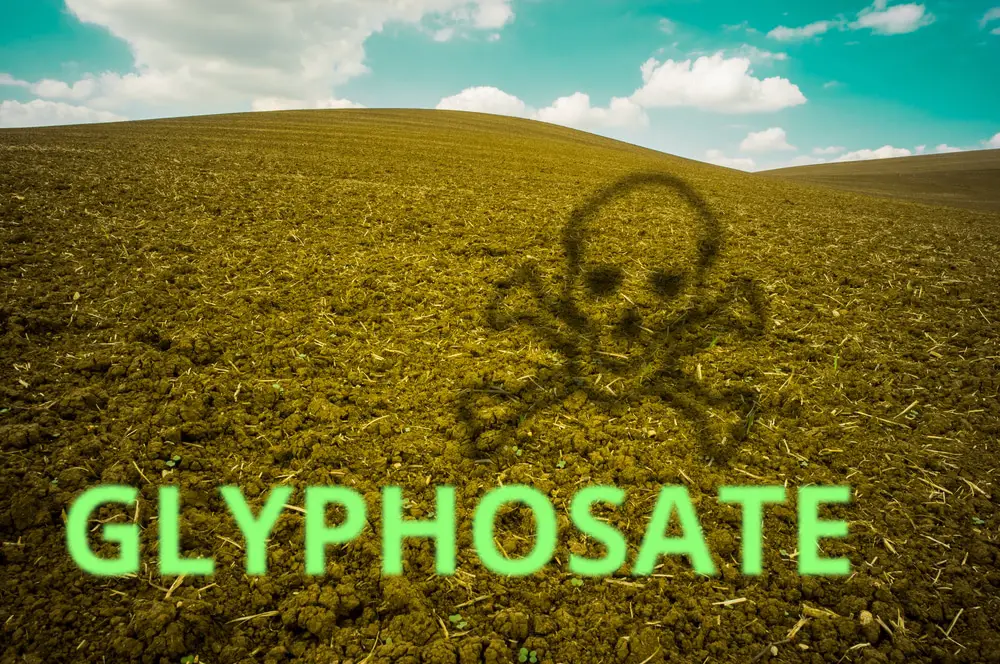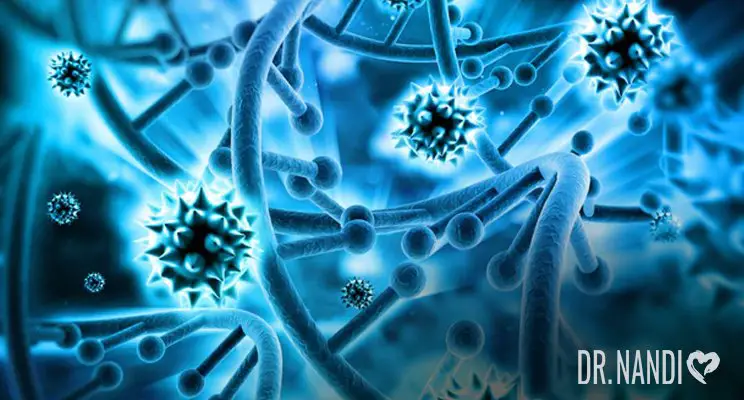Glyphosate is a weed killer or herbicide widely used to kill certain plants or grasses. It is also applied as a regulator for the growth and ripening of certain crops and fruits. In recent times glyphosate has caused some controversy due to potential health risks, and many countries have either restricted its use or have pledged to ban it completely. (1)
Now, researchers at the University of Turku, Finland, have developed the first methods and software tools to determine and test the potential sensitivity of organisms to glyphosate.
Their findings have found that over half of the bacterial species in the human gut microbiome are potentially sensitive to glyphosate.
What does this mean to our overall health?
Human Gut Microbiome
Millions of microbes or bacteria live inside the human body and play an important role in many aspects of health and wellbeing. When gut microbiomes are altered or become imbalanced, it can lead to several health conditions including:
- A weakened immune system – Healthy gut microbiome is essential for immune homeostasis which allows the body to maintain a stable and carefully controlled internal environment. (2)
- Diabetes: Changes in gut microbiomes may cause dysbiosis which in turn, may lead to a wide range of conditions including diabetes. (3)
- Heart health: According to one study at Oslo University, Norway, patients with healthier gut bacteria have a reduced risk of death through heart failure, and are less likely to require a heart transplant. (4)
- Weight control: A fiber-rich diet important for gut health may help prevent weight gain (5)
- Brain health: Some studies have shown a link between gut microbes and the central nervous system, which controls brain functioning. (6)
- Dysbiosis is a condition where gut bacteria becomes imbalanced leading to a range of stomach issues.
Microbiomes are also present in soil and on plant surfaces and are both beneficial to healthy gut microbiota. Traditional or organic farming techniques are also said to be beneficial in promoting healthy microbiota and may play key roles in preventing soil erosion, conserving water, and breaking down environmental pollutants. (7, 8)
Future Studies And Research
Glyphosate is designed to zero in on an enzyme called EPSPS in the shikimate pathway (only found in plants), and is therefore thought to be safe. However, with the study showing that 54% of the human core gut bacterial species are potentially sensitive to glyphosate; what does this mean for our health and the future use of glyphosate?
More research needs to be carried out but the development of the new bioinformatics tool to predict if the human gut bacterium is sensitive to glyphosate is an important start to understanding the potential effects on human health.
Safety Advice If Using Glyphosate
If you use a weed killer with glyphosate on your lawn or garden, you may be exposed by inhalation, on your skin, or in your eyes. These areas may become irritated. (9)
- Always wear gloves.
- Use in well-ventilated areas.
- Do not swallow: If swallowed, burns in your throat and mouth may occur and could cause nausea, vomiting, or diarrhea.
- In rare cases, people who intentionally swallowed products with glyphosate have died.
- Always keep away from pets.
- Store away from children.
Sources
- https://www.dw.com/en/whats-driving-europes-stance-on-glyphosate/a-53924882#:~:text=Luxembourg%3A%20The%20small%20Benelux%20state,taking%20effect%20in%20three%20phases.&text=In%20May%20of%202019%2C%20Agriculture,by%202021%20with%20limited%20exceptions.
- https://pubmed.ncbi.nlm.nih.gov/27231050/
- https://pubmed.ncbi.nlm.nih.gov/30342053/
- https://www.ahajournals.org/doi/10.1161/CIRCULATIONAHA.119.043300#:~:text=Patients%20with%20heart%20failure%20who,(ESC)%20Heart%20Failure%202019.
- https://www.healthline.com/nutrition/gut-microbiome-and-health#TOC_TITLE_HDR_3
- https://pubmed.ncbi.nlm.nih.gov/22968153/
- https://www.ncbi.nlm.nih.gov/pmc/articles/PMC6780873/
- https://www.researchgate.net/publication/308547225_Organic_farming_induces_changes_in_soil_microbiota_that_affect_agro-ecosystem_functions
- http://npic.orst.edu/factsheets/glyphogen.html


















